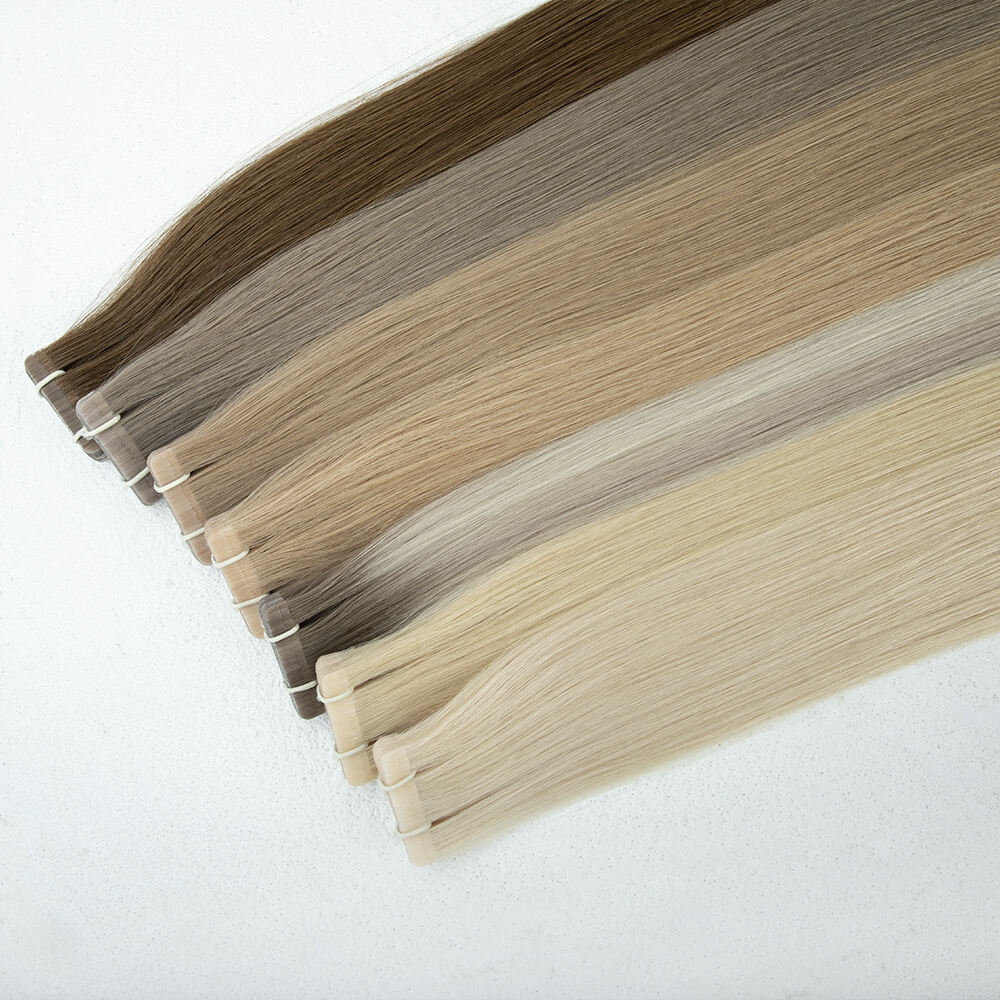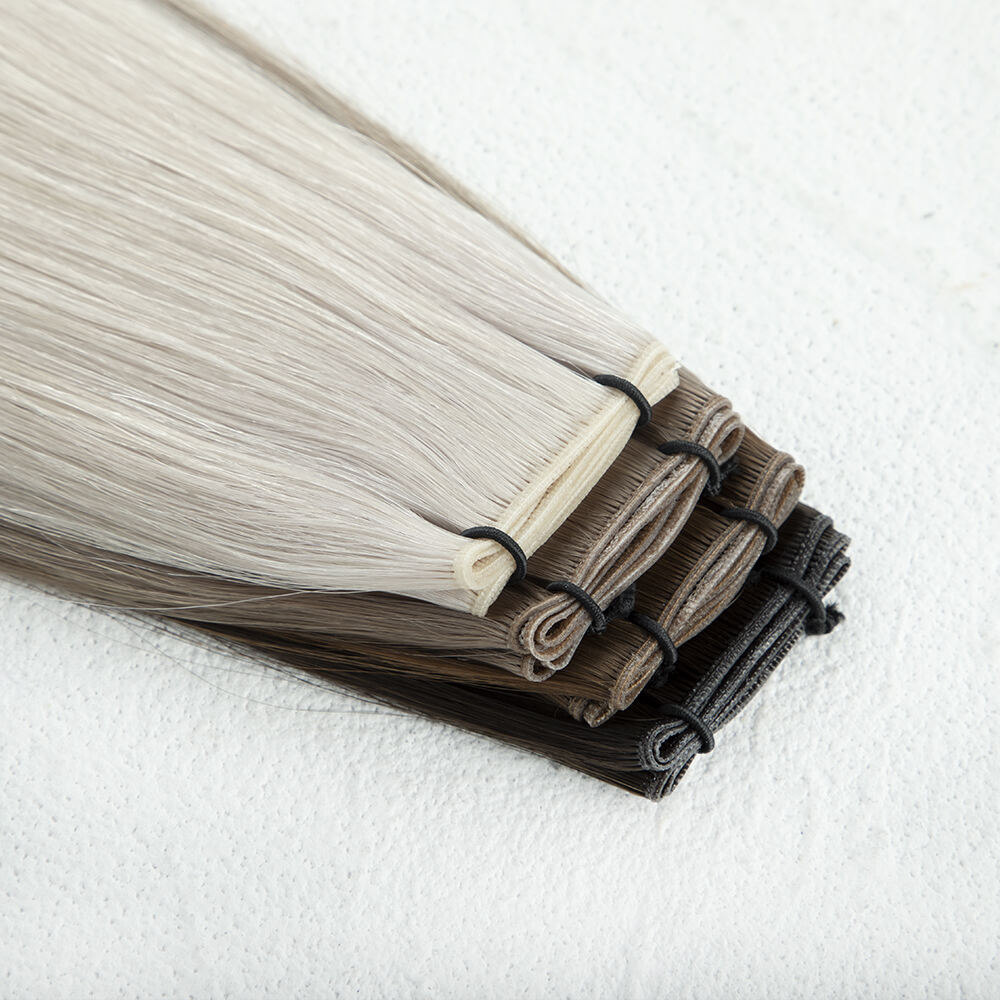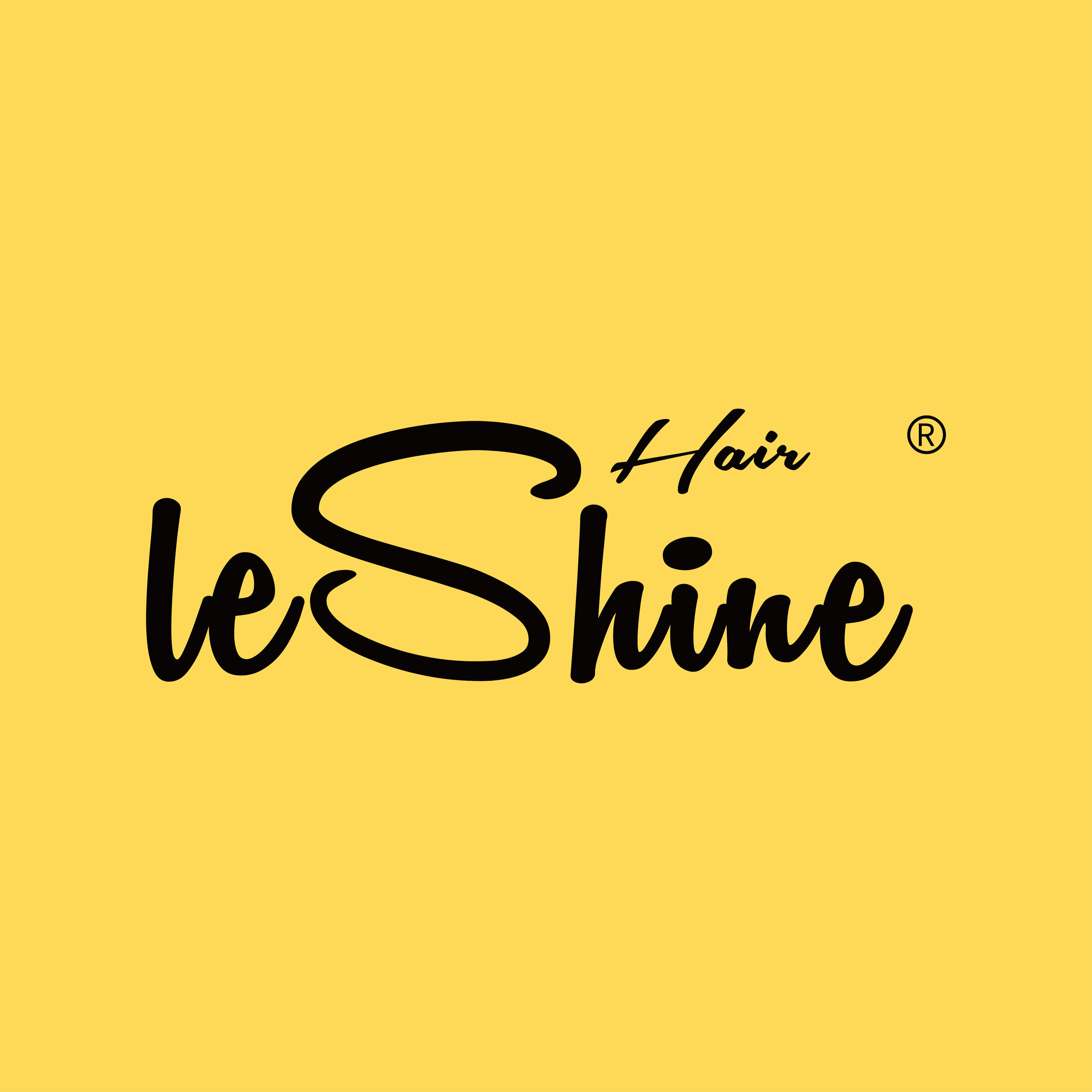
Professional salons require hair extensions that meet the highest standards of quality, durability, and versatility to satisfy discerning clients. Selecting the right salon hair extensions involves understanding various factors including hair origin, construction methods, application techniques, and longevity expectations. Modern salon professionals must navigate an increasingly complex marketplace filled with options ranging from synthetic alternatives to premium human hair varieties. The choice of extensions can significantly impact client satisfaction, retention rates, and overall salon reputation in today's competitive beauty industry.
Understanding Hair Extension Quality Standards
Human Hair vs Synthetic Options
The fundamental distinction between human hair and synthetic alternatives forms the cornerstone of professional extension selection. Human hair extensions offer unmatched versatility, allowing clients to heat style, color, and treat them similarly to their natural hair. Premium Remy hair maintains the cuticle structure intact, ensuring minimal tangling and maximum longevity. European hair varieties typically provide the finest texture and most natural appearance for discerning salon clientele.
Synthetic extensions have evolved significantly, with high-quality options now mimicking natural hair textures remarkably well. However, they remain limited in styling flexibility and cannot withstand chemical treatments or high heat applications. Professional salons often stock both varieties to accommodate different client budgets and styling preferences. The key lies in clearly communicating the differences and setting appropriate expectations for each option.
Remy Hair Construction Benefits
Remy hair construction represents the gold standard in professional hair extension manufacturing. This process ensures all hair strands maintain their natural cuticle direction, preventing the matting and tangling issues commonly associated with lower-grade extensions. Double-drawn Remy hair provides additional thickness from root to tip, creating fuller, more luxurious results that salon clients expect.
The collection process for authentic Remy hair involves careful handling to preserve the hair's natural structure and integrity. Single donors provide the most consistent color and texture matching, while proper processing maintains the hair's natural shine and movement. Professional salons investing in quality Remy constructions typically experience fewer client complaints and higher satisfaction rates.
Application Methods for Professional Salons
Weft-Based Extension Systems
Weft-based systems offer versatility and efficiency for busy salon environments. Traditional sewn wefts provide secure attachment points for various application methods including tape-ins, clip-ins, and sew-in installations. Machine-sewn wefts deliver consistent density and durability, while hand-tied options offer more natural movement and lighter weight for sensitive scalps.
Genius weft technology represents an advancement in weft construction, featuring innovative attachment methods that reduce bulk while maintaining security. These systems often incorporate silicone strips or specialized bonding agents that create virtually undetectable attachment points. Professional stylists appreciate the reduced installation time and improved client comfort associated with modern weft innovations.
Bonding and Fusion Techniques
Keratin-based bonding systems provide semi-permanent solutions ideal for clients seeking long-term wear options. Hot fusion methods create strong, durable bonds that can withstand regular washing and styling routines. Cold fusion alternatives offer gentler application processes suitable for chemically treated or damaged hair types. Professional application requires specialized tools and training to achieve optimal results.
Micro-ring and loop systems provide reusable options that eliminate the need for adhesives or heat application. These mechanical attachment methods allow for easy removal and reinstallation, making them cost-effective for clients who frequently change their looks. Proper sizing and placement techniques are crucial for achieving comfortable, secure installations that maintain hair health.

Color Matching and Customization
Professional Color Assessment
Accurate color matching requires understanding undertones, lighting conditions, and color theory principles. Professional salon hair extensions should offer comprehensive color ranges that accommodate diverse client needs. Natural lighting assessment provides the most accurate color evaluation, while artificial salon lighting can create misleading color perceptions.
Custom color blending techniques allow stylists to create seamless transitions between natural hair and extensions. Highlighting, lowlighting, and root shadowing methods help integrate extensions naturally with existing hair colors. Professional-grade extensions should accept color treatments when necessary, though pre-colored options often provide superior results with less processing damage.
Texture Coordination Strategies
Matching hair texture involves analyzing natural curl patterns, density, and coarseness levels. European hair typically offers finer textures suitable for clients with naturally straight to wavy hair types. Asian hair varieties provide stronger, coarser textures ideal for clients with naturally thick or coarse hair structures. Proper texture matching ensures extensions blend seamlessly and move naturally with the client's existing hair.
Texture modification techniques allow stylists to customize extensions for optimal blending results. Steam processing, chemical relaxing, or perming can alter extension textures when performed by experienced professionals. However, virgin hair often responds better to modification treatments than previously processed extensions, making initial texture selection crucial for successful outcomes.
Maintenance and Longevity Considerations
Client Care Education
Proper client education significantly impacts extension longevity and satisfaction rates. Professional salons must provide comprehensive care instructions covering washing techniques, styling limitations, and maintenance schedules. Specialized shampoos and conditioners formulated for extensions help preserve hair quality and bond integrity throughout the wear period.
Sleep protection methods, including silk pillowcases and protective hairstyles, prevent unnecessary tangling and breakage during rest periods. Regular brushing with appropriate tools maintains extension appearance while preventing matting issues. Professional maintenance appointments allow stylists to assess bond integrity and perform necessary adjustments or replacements.
Professional Maintenance Services
Scheduled maintenance appointments provide opportunities to refresh extension appearance and address any emerging issues. Professional deep conditioning treatments restore moisture balance and maintain hair vitality throughout extended wear periods. Bond reinforcement procedures can extend installation longevity while ensuring continued comfort and security.
Removal and reinstallation services allow clients to maintain their extension investments long-term. Proper removal techniques preserve both natural hair health and extension reusability. Professional cleaning and reconditioning services can restore extensions to near-original condition for subsequent installations, providing excellent value for quality investments.
Business Considerations for Salon Owners
Inventory Management Strategies
Successful salon extension programs require strategic inventory planning based on client demographics and service demand patterns. Stocking popular colors and lengths while maintaining specialty options for unique requests creates balanced inventory investments. Establishing relationships with reliable suppliers ensures consistent product availability and competitive pricing structures.
Storage conditions significantly impact extension quality and longevity. Climate-controlled environments prevent moisture damage and color fading, while proper packaging maintains hair integrity during storage periods. Regular inventory rotation ensures clients receive fresh products while minimizing waste from outdated stock.
Staff Training and Certification
Comprehensive staff training programs ensure consistent service quality and client satisfaction across all stylists. Certification programs from extension manufacturers provide technical expertise and marketing support for salon teams. Ongoing education keeps staff current with emerging techniques and product innovations in the rapidly evolving extension industry.
Investment in quality training typically results in higher service pricing capabilities and improved client retention rates. Certified stylists command premium pricing while delivering superior results that justify increased service costs. Professional development opportunities also contribute to staff satisfaction and retention within competitive salon environments.
FAQ
How long do professional salon hair extensions typically last?
High-quality salon hair extensions can last anywhere from 3 to 8 months depending on the application method, hair quality, and maintenance routine. Tape-in extensions typically require repositioning every 6-8 weeks, while bonded extensions can remain in place for 3-4 months. Proper care and regular maintenance appointments significantly extend extension lifespan and maintain optimal appearance throughout the wear period.
Can salon hair extensions be colored or chemically treated?
Premium human hair extensions, particularly Remy and virgin varieties, can generally accept chemical treatments including coloring, highlighting, and chemical texturizing. However, pre-colored extensions often provide superior results with less processing damage. Professional application is essential for chemical treatments on extensions, as the hair may respond differently than natural hair due to previous processing or origin variations.
What factors determine the cost of professional salon hair extensions?
Extension pricing depends on hair quality, origin, length, application method, and salon location. Premium Remy hair from European sources commands higher prices than synthetic or lower-grade human hair options. Installation complexity, maintenance requirements, and stylist expertise also influence service pricing. Long-term value often favors higher-quality investments due to extended wear periods and superior appearance.
How should clients prepare for their extension appointment?
Clients should arrive with clean, dry hair free from styling products or treatments. Recent chemical services should be completed at least two weeks prior to extension installation to ensure hair stability. Consultation appointments allow stylists to assess hair condition, discuss expectations, and select appropriate extension types and colors. Clients should plan for extended appointment times, particularly for full-head installations or complex color matching requirements.




